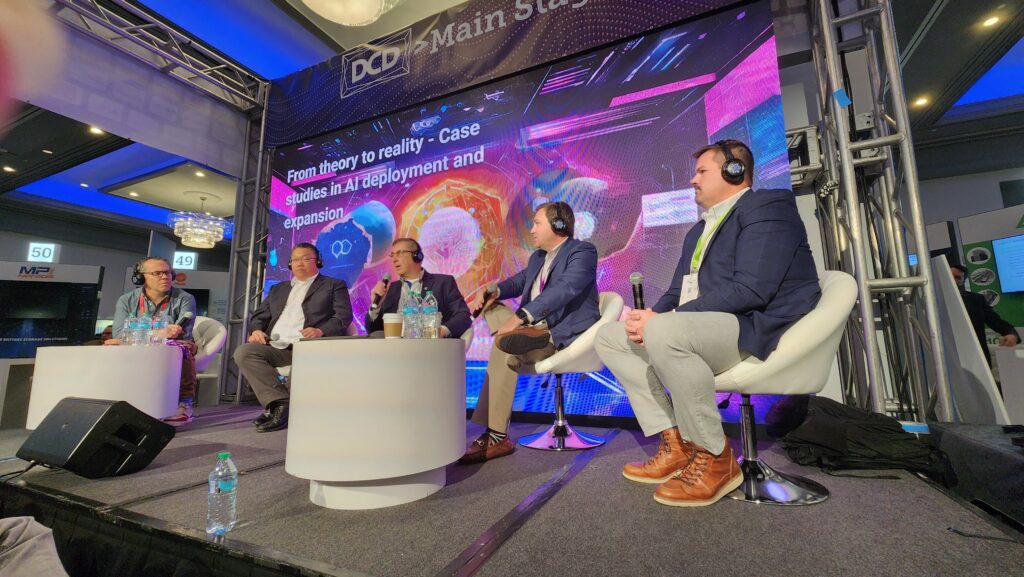Five real-world generative AI use cases

What do data center solutions provider see happening in generative AI use cases?
LANSDOWNE, Virginia—On a sunny, 77-degree November day amid rolling green lawns not far from northern Virginia’s Data Center Alley, representatives from the data center industry filled a packed ballroom at the Data Center Dynamics Connect Virginia event to discuss the ongoing impact of artificial intelligence and the insatiable need for computing resources.
Panelists discussing artificial intelligence deployment and expansion were asked to give real-world examples of innovative uses of generative AI that their companies, or their customers, were either using or developing—use cases that go beyond users amusing themselves by creating images of cats in pajamas.
“The range of actual solutions are fundamentally amazing,” said Duncan Ng, VP of solutions engineering at cloud infrastructure company Vultr.
Here’s what they had to say about real-world generative AI use cases that they were seeing.
–Healthcare paperwork. Ng said that he is seeing the use of generative AI models in the area of healthcare documentation that is the basis for negotiation and back-and-forth among doctors, hospitals and insurance companies.
–Employee transitions. No employee stays at a company, or in a specific position, forever. Greg Ratcliff, chief innovation officer for power solutions provider Vertiv, which serves the data center space, said that generative AI is being used to sift through the data left behind when employees leave or are promoted. Often that data might sit unused or lost on a laptop somewhere—instead, Ratcliff said, gen AI is being used to go through digital information on what the former employee was working on, what emails they had sent and other such project-related items so that co-workers or new employees can “stand on the shoulders” of the previous employee and know what they were doing, for a smoother transition.
–Programming assistance. Ratcliff added that while programmers are nervous about being replaced by AI, he assures them that the use of generative AI assistants that are trained on open-source code means that rather than less work, work gets faster—by increasing the speed of releases, for example. Having gen AI coding assistants that can track programmers’ work in real-time and suggest code drawn from open-source training can both increase efficiency and expand programmers’ skills, Ratcliff said.
–Consulting insights. Michael Maniscalco, CTO of Applied Digital, described generative AI use cases where gen AI is being used to provide “pretty vanilla, very boring” insights into company data that might otherwise be put together by third-party consultants or even interns—for example, asking gen AI to bring together specific information from a company’s last two years of earnings reports. He said that generative AI retrieval augmented generation (RAG) systems are quite good at putting together that type of information and may get 70% or 80% of the way to fully meeting the requirements of such a request, and do so very quickly, rather than an employee having to make a request for a human to put that information together or go back and forth with an overseas contractor over the details of what is needed.
–Answering customer queries. Dylan Boday, VP of product management for IBM Technology Lifecycle Services, noted that early generative AI use cases “are still with us”, such as chatbots for internal company use like answering human resources queries, or customer service chatbots. Boday said that the use of generative AI helps IBM better support its clients by both deflecting calls by providing the answers to questions that are simple and easily answered, as well as being able to help customer service agents quickly get context or documentation in order to solve problems. He said that IBM is seeing millions of questions a year being asked of its AI systems and has seen a 30% improvement in how quickly customer issues are being solved.

Comments are closed.